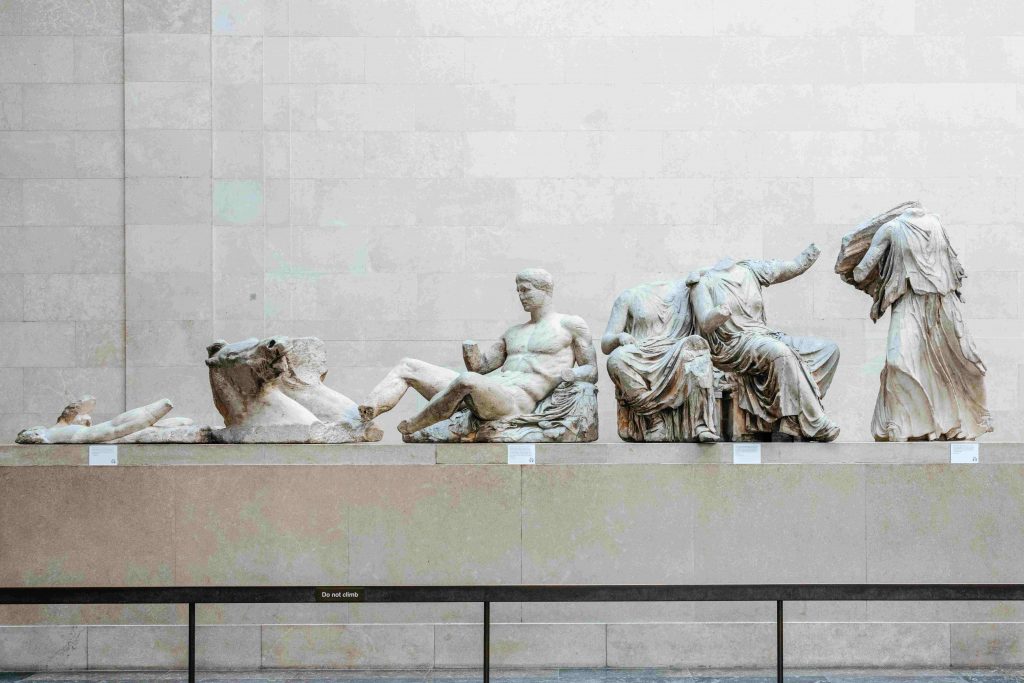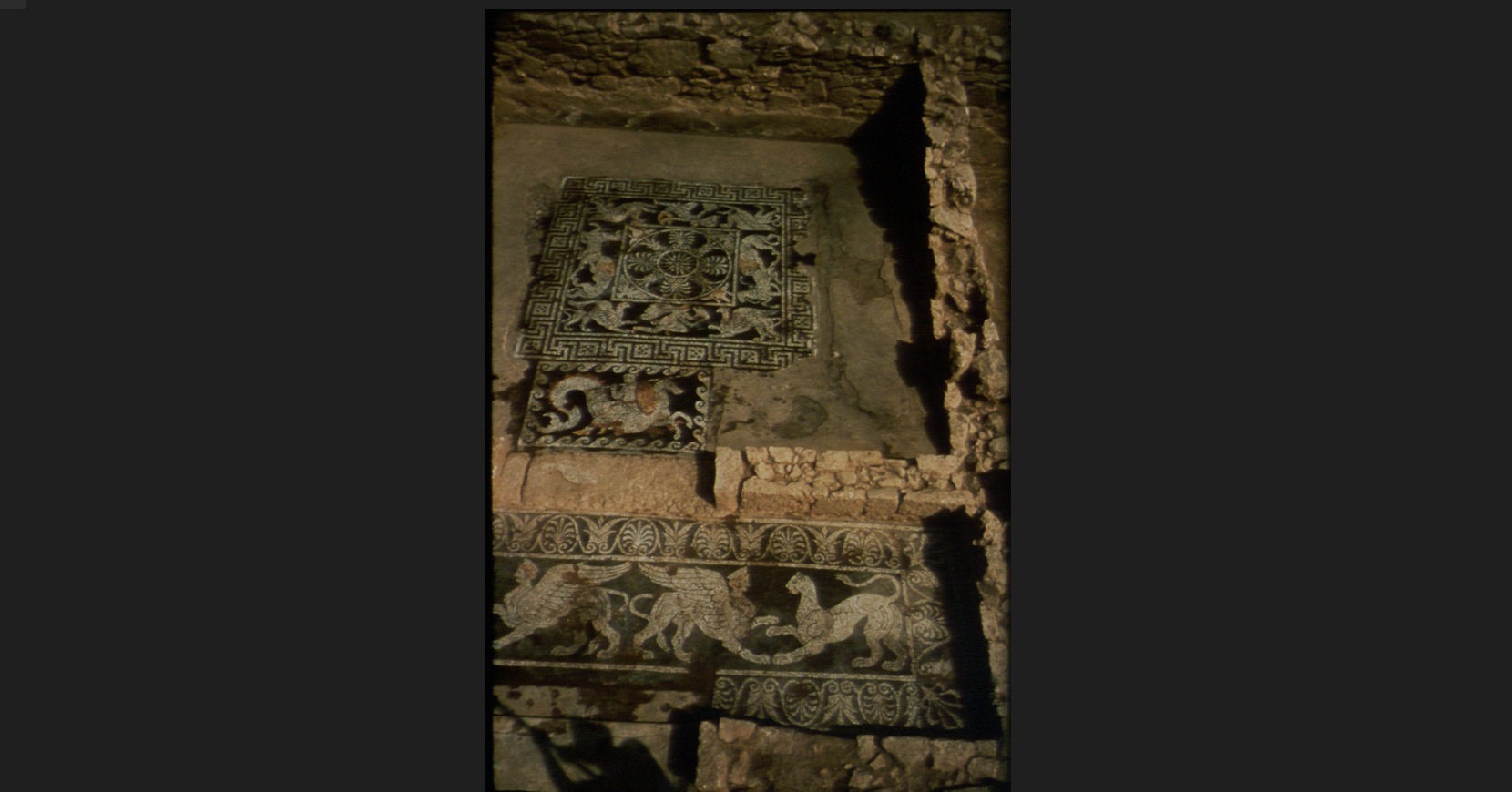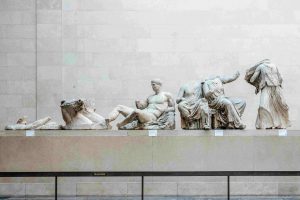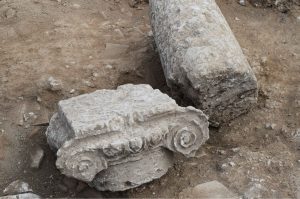The Greek Ministry of Culture announced last week that Greek and Belgian archaeologists uncovered a 2,700-year-old temple on the picturesque Greek island of Evia, also known as Euboea during scheduled archaeological digs by Greek and Belgian researchers. The temple, boasting a horseshoe-shaped altar, stretches an impressive 100 feet in length and is situated adjacent to another temple devoted to the goddess Artemis.
The newly discovered temple’s nave revealed several hearths, one of which contained an ash-caked altar holding fragments of charred bone, pottery, vases, alabaster artifacts, and a trove of jewelry made from gold, silver, coral, and amber. Amulets and bronze and iron fittings were also among the remarkable findings. Notably, some of the unearthed pottery predates the temple itself.
During the sixth century B.C., brick partitions were incorporated into the structure, likely added for support following potential fire damage. Beneath the temple, archaeologists uncovered stone walls from an earlier building and bronze figurines in the shapes of bulls and a ram, shedding light on the island’s rich historical tapestry.






